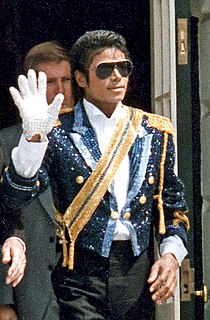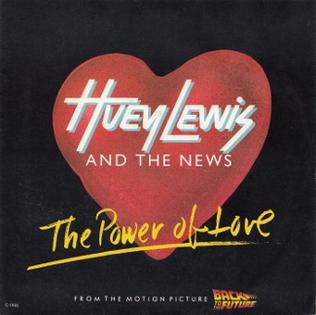Related Research Articles

"Life Is a Highway" is a song by Canadian musician Tom Cochrane from his second studio album, Mad Mad World (1991). The song became a number-one hit in Cochrane's native Canada in late 1991. "Life Is a Highway" also peaked at number six on the US Billboard Hot 100 chart in August 1992 and reached the top three in Australia and New Zealand the same year. The song was covered by Chris LeDoux for his 1998 album One Road Man and Rascal Flatts for the Cars soundtrack.

American singer Michael Jackson has released 63 of his songs as singles, including eight as a featured artist. He has 13 solo US #1s including 1 with Paul McCartney, and one with the USA for Africa "We Are the World".

Lovin' and Learnin' is the fifth studio album by American country music singer Tanya Tucker. It was released on January 5, 1976, by MCA Records. The album was produced by Jerry Crutchfield and includes two top ten singles, "Don't Believe My Heart Can Stand Another You" and "You've Got Me to Hold On To".
The Raybon Brothers was a country duo from Sanford, Florida, consisting of brothers Marty Raybon and Tim Raybon. Prior to the duo's inception in 1997, Marty Raybon was the lead singer of the country music band Shenandoah, having left in 1997, before rejoining in 2014.

"The Power of Love" is a 1985 single by Huey Lewis and the News, written for and featured in the 1985 blockbuster film Back to the Future. The song became the band's first number-one hit on the U.S. Billboard Hot 100 and their second number-one hit on the U.S. Mainstream Rock chart. In the United Kingdom, it was released as a double-A side with "Do You Believe in Love", becoming the band's only top ten hit on the UK Singles Chart. The song is included alongside "Back in Time" on the film's soundtrack, and appears as a bonus track on international editions of the band's fourth studio album, Fore!.
"By the Time I Get to Phoenix" is a song written by Jimmy Webb. Originally recorded by Johnny Rivers in 1965, it was covered by American country music singer Glen Campbell on his album of the same name. Released on Capitol Records in 1967, Campbell's version topped RPM's Canada Country Tracks, reached number two on Billboard's Hot Country Singles chart, and won two awards at the 10th Annual Grammys. Broadcast Music, Inc. (BMI) named it the third most performed song from 1940 to 1990. The song was ranked number 20 on BMI's Top 100 Songs of the Century. Frank Sinatra called it "the greatest torch song ever written."
"Write This Down" is a song written by Dana Hunt Black and Kent Robbins and recorded by American country music singer George Strait. It was released in March 1999 as the second single from Strait's album Always Never the Same. It was Strait's 35th number one single on the US Billboard Hot Country Singles & Tracks chart. It also reached number 27 on the Billboard Hot 100, becoming one of his most successful crossover singles to date.

The discography of American country music singer Marty Robbins consists of 52 studio albums, 13 compilation albums, and 100 singles. In his career, Robbins has charted 17 Number One singles on the Billboard Hot Country Songs charts, as well as 82 Top 40 singles.
"Honky Tonkin's What I Do Best" is a song written by Marty Stuart, and recorded by American country music artists Stuart and Travis Tritt. It was released in April 1996 as the first single and title track from the album Honky Tonkin's What I Do Best. The song reached number 23 on the Billboard Hot Country Singles & Tracks chart and peaked at number 8 on the RPM Country Tracks chart in Canada. It was nominated for the 1997 Grammy Award for Best Country Collaboration with Vocals, but lost to High Lonesome Sound by Vince Gill. It was also nominated for a CMA Vocal Event Of The Year Award in 1996.

"This One's Gonna Hurt You " is a song written by American country music artist Marty Stuart, who recorded the song as a duet with Travis Tritt. It was released in June 1992 as the first single from Stuart's album This One's Gonna Hurt You. It peaked at #7 in the United States, and #6 Canada.
"Ribbon of Darkness" is a song written by Gordon Lightfoot that was released in 1965 as a single by Marty Robbins. The song was Robbins' eleventh number one on the U.S. country singles chart, where it spent one week at the top and a total of nineteen weeks on the chart.
"I Walk Alone" is a song written by Herbert Wilson. and recorded by American country music artist, Eddy Arnold and was the B-side of his 78 rpm single "Did You See My Daddy Over There" (1945), and later for his compilation album Eddy Arnold Sings Them Again (1960).
"Tempted" is a song co-written and recorded by American country music artist Marty Stuart. It was released in August 1991 as the third single and title track from the album Tempted. They reached #5 on the Billboard Hot Country Singles & Tracks chart. It was written by Stuart and Paul Kennerley.
"Are the Good Times Really Over " is a song written and recorded by American country music artist Merle Haggard backed by The Strangers. It was released in May 1982 as the third single from his album Big City. The song reached #2 on the Billboard Hot Country Singles chart and #1 on the RPM Country Tracks chart in Canada.
"I Don't Think She's in Love Anymore" is a song written by Kent Robbins, and recorded by American country music artist Charley Pride. It was released in March 1982 as the third single from his album Charley Sings Everybody's Choice. The song reached number 2 on the Billboard Hot Country Singles chart and number 1 on the RPM Country Tracks chart in Canada.

"Big Iron" is a country ballad written and performed by Marty Robbins, originally released as an album track on Gunfighter Ballads and Trail Songs in September 1959, then as a single in February 1960 with the song "Saddle Tramp" as the B-side single. Members of the Western Writers of America chose it as one of the Top 100 Western songs of all time.
"When I Stop Leaving " is a song written by Kent Robbins, and recorded by American country music artist Charley Pride. It was released in May 1978 as the first single from his album Burgers and Fries/When I Stop Leaving . The song peaked at number 3 on the Billboard Hot Country Singles chart. It also reached number 1 on the RPM Country Tracks chart in Canada.
"Kate" is a song written by Marty Robbins, and recorded by American country music artist Johnny Cash. It was released in March 1972 as the third single from his album A Thing Called Love. The song peaked at #2 on the Billboard Hot Country Singles chart. It also reached #1 on the RPM Country Tracks chart in Canada. The song was originally recorded by Rex Allen on a 1961 single with the title "You Put Me Here " issued on San Antonio-based Hacienda Records Catalog No. WW-007.
"Till I Found You" is a song written by Hank DeVito and Paul Kennerley, and recorded by American country music artist Marty Stuart. It was released in April 1991 as the second single from his album Tempted. The song reached number 12 on the Billboard Hot Country Singles & Tracks chart in July 1991.
"Tie Your Dream to Mine" is a song recorded by American country music artist Marty Robbins. It was released in October 1982 as the second single from the album Come Back to Me. The song reached #24 on the Billboard Hot Country Singles & Tracks chart. The song was written by Van Stephenson, Tim DuBois, Jeff Silbar and Sam Lorber.